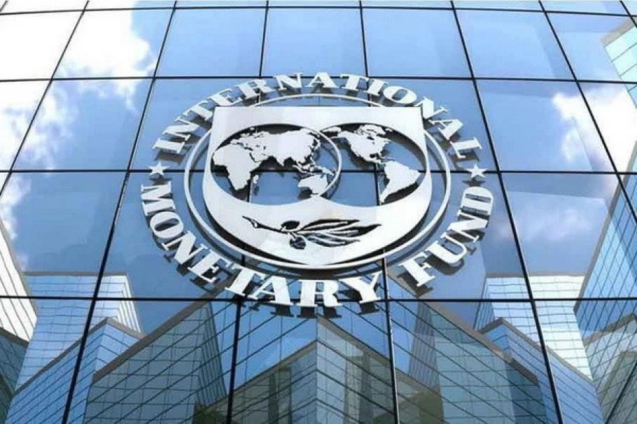The International Monetary Fund (IMF) is forecasting a consistent decline in Ghana’s Debt-to-Gross Domestic Product (GDP) ratio in the next six years.
In its April 2024 Fiscal Monitor, the Fund said Ghana’s debt-to-GDP will plummet to 69.7% in 2029.
In 2024, the debt-to-GDP ratio is estimated at 83.6%, whilst that of 2025, 2026, 2027 and 2028 are pegged at 80.9%, 77.9%, 74.9% and 72.0%.
The Fund had earlier stated that Ghana’s fiscal economy was improving.
According to Stephane Roudet, Mission Chief for Ghana, the government policies and reforms to restore macroeconomic stability and debt sustainability while laying the foundations for stronger and more inclusive growth are already generating positive results.
“On the fiscal front, consistent with the authorities’ commitments under the IMF-supported program, the fiscal primary balance on a commitment basis improved by over 4 percentage points of GDP in 2023 and is on track to achieve a fiscal primary surplus of ½ percent of GDP in 2024. Spending has remained within budget limits, while the authorities have significantly expanded social protection programs to help mitigate the impact of the crisis on the most vulnerable. Ghana has met its non-oil revenue mobilization target, while making progress in implementing ambitious structural fiscal reforms to bolster domestic revenues, strengthen public financial and debt management, and enhance transparency”, it added.
Ghana secured a Memorandum of Understanding (MoU) from its bilateral creditors on restructuring debts. This was after it reached a “deal” with the bilateral creditors on the terms for restructuring the debt.
This move coupled with the domestic debt restructuring is intended to save the country some cost.
Ghana ended 2023 with a public debt of GH¢610bn – BoG
Ghana’s public debt reached GH¢610 billion ($52.4 billion) at the end of 2023, the Bank of Ghana has revealed in its March 2024 Summary of Economic and Financial Data.
It went up by GH¢42.7 billion between September 2023 and December 2023, after it fell by ¢14.2 billion between June 2023 and September 2023 to ¢567.3 billion ($51.0 billion).
The total public debt stock of the country is equivalent to 72.5% of Gross Domestic Product (GDP).
This suggests that the country’s debt situation has not improved despite completing the Domestic Debt Exchange Programme during the period.
While the domestic debt went up by GH¢19.1 billion, the external debt increased by GH¢23.6 billion, largely as a result of the cedi depreciation.
Latest Stories
-
AMA decongestion exercise: It will only last for 7 months – former MP Ebenezer Nartey
14 minutes -
Tema fire: Chief Fire Officer joins firefighters to extinguish flames
42 minutes -
NPC Ghana reassigns Isaac Tetteh as Media Officer and Administrator for Para-Sport development
42 minutes -
Today’s Front pages: Thursday, May 22,2025
1 hour -
Ghana Stock Exchange records over 30% growth in 2025 Q1; best securities market in West Africa
1 hour -
Smirnoff in the Mix Vol. 2: A bold celebration of Ghana’s DJ Culture, Powered by Chichi DJ
2 hours -
Kasapreko to list equities on Ghana Stock Exchange
2 hours -
One arm, full heart: Two para athletes living beyond limbs
2 hours -
Edudzi Tameklo welcomes suspended CJ’s application for injunction; says it’s refreshing
3 hours -
Cedi stability partly due to NPP policies – Prof. Bokpin
3 hours -
April Producer Price Inflation drops to 18.5%
3 hours -
Reliable power crucial for 24-hour economy – Asantehene
3 hours -
Meet the 37 members of the 8th NDPC
3 hours -
Government receives $174m as part payment from sale of Newmont’s Akyem Mine
3 hours -
Climate expert cautions public against use of tinted glasses in residential buildings
3 hours

